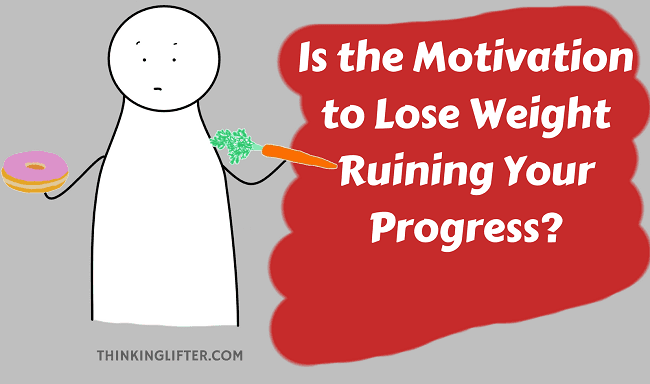
At some point in your life, you probably experienced immense motivation to lose weight. What followed was nothing less than incredible excitement and determination to change for the better.
But, after a while, you began losing the drive to eat healthier foods and exercise. Your motivation had waned.
Before you knew it, you were back to your old behaviors, frustrated and disappointed.
So what gives?
Motivation is a tricky beast, but today, we’ll tackle it and see how we can use it to our advantage.
Download the complete fat loss guide. Just click the button below:
More...
What is Motivation?
Many people interpret motivation in different ways. Some see it as the psychological force that shows up every so often and makes us change for the better.
Others consider it a daily occurrence that drives us to do things and improve our lives.
And neither camp is right or wrong. But the author Steven Pressfield put it eloquently in his book The War of Art. To paraphrase him, “At some point, the pain of not doing it becomes greater than the pain of doing it.”
At some point, to change for the better becomes easier than to stay the same.
It’s easier to start going to the gym and feel embarrassed than to spend another day hating the way you look.
It’s easier to start socializing more than to spend another weekend at home, watching Netflix.
It’s easier to start working harder than to spend another year broke.
We could get motivated by many things, I guess. But I think this indeed is the essence of motivation.
But motivation rarely lasts long. We get an immense drive to do or achieve something. But after a few days or weeks, the motivation fades, we stop taking the positive actions, and we are right back where we started.
So, what’s the solution?
Let me Tell You Something About the Motivation to Lose Weight
One of the most common characteristics of motivation is its elusiveness. It comes strong and leaves before you know it.
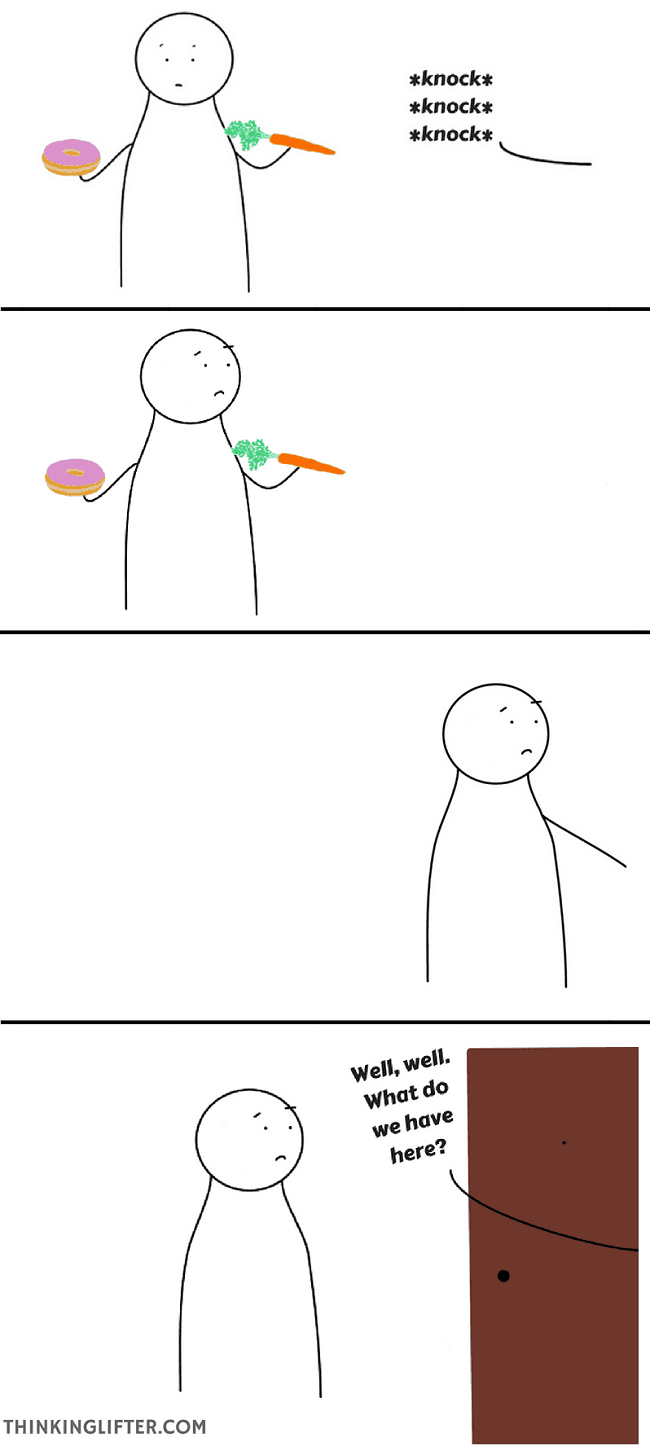
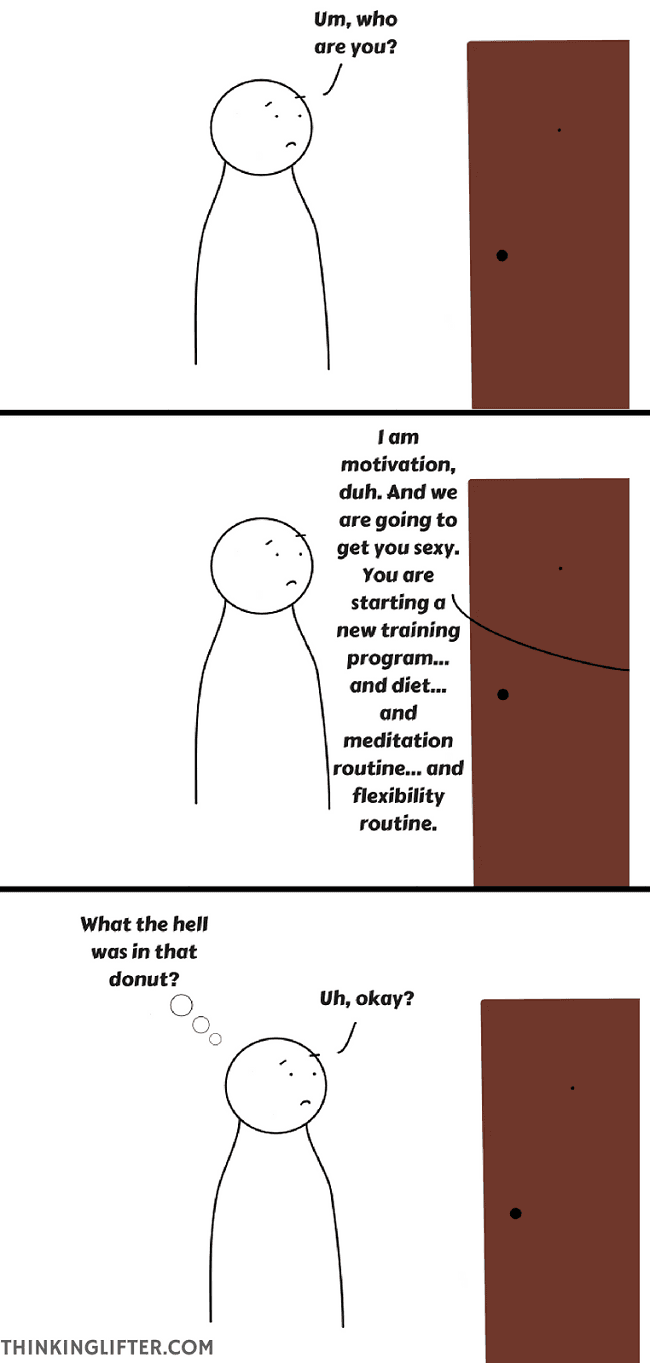
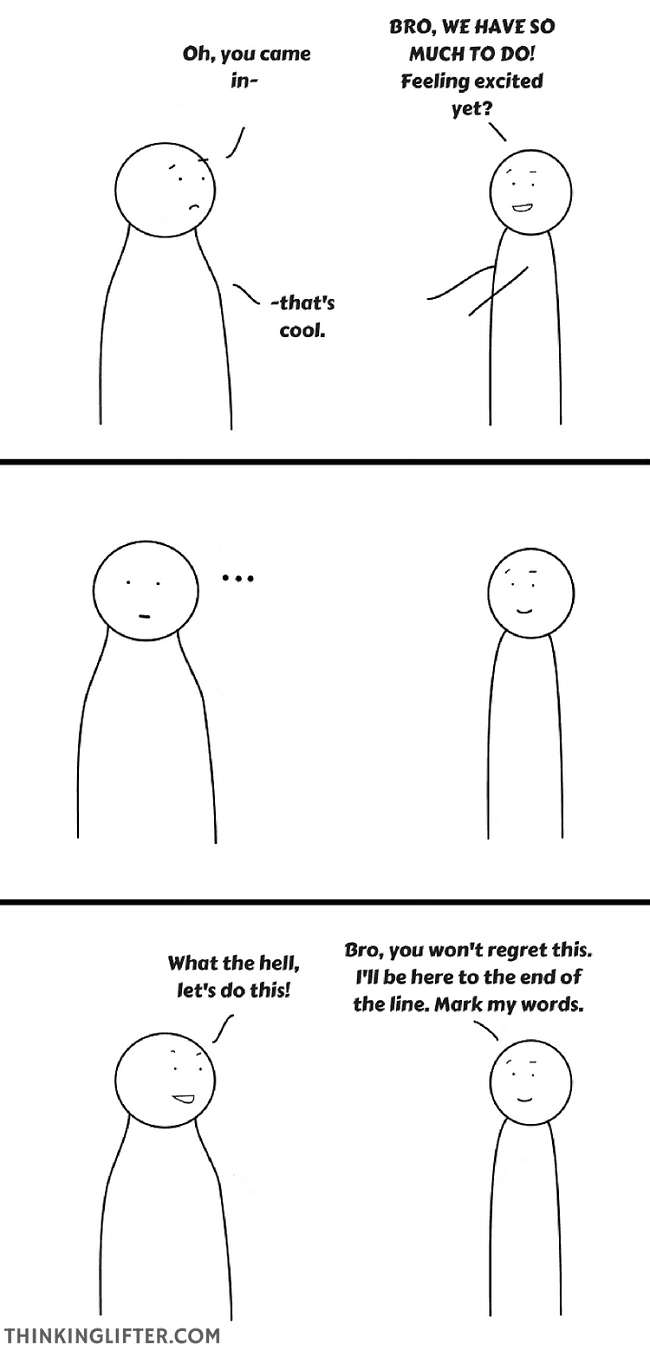
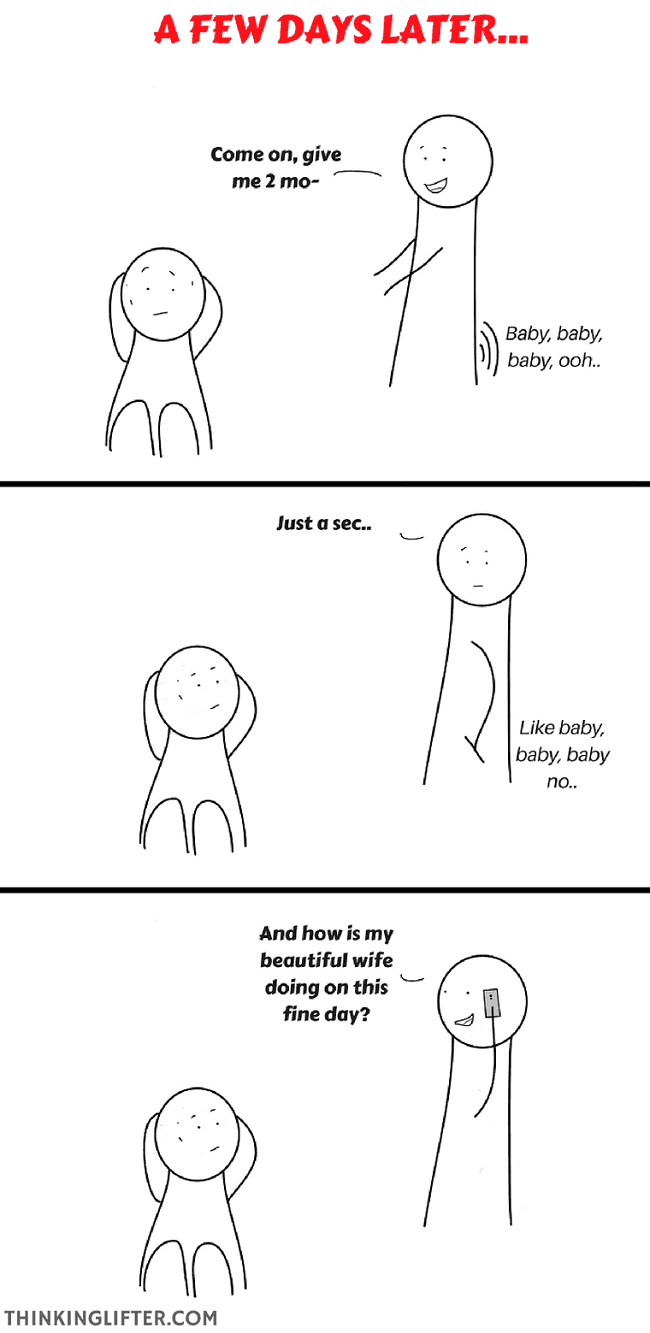
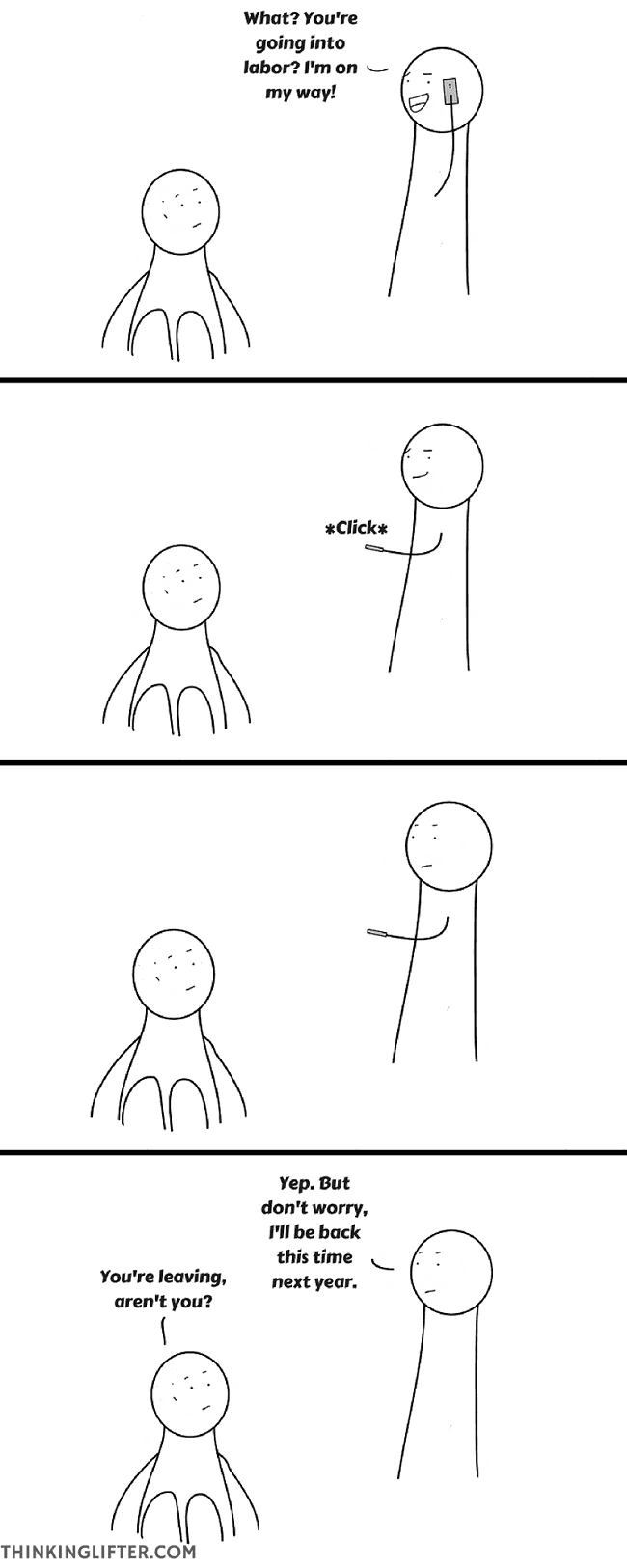
We are also under the false impression that motivation always comes before the action and never as a result of it. But, this is not always true. Allow me to elaborate:
Seeing someone’s incredible weight loss transformation is undoubtedly going to motivate you to get your act together and achieve the same thing. But this kind of motivation rarely lasts long.
You’ll be back to your old behaviors in no time.
On the other hand, if you start eating better, exercise consistently and start losing fat, you’ll get motivated on two fronts:
First, you’ll start seeing positive changes in your body, people around you are going to take notice, and you’ll start feeling more motivated to keep pushing.
Second, once enough time passes, and you’ve gained momentum, it would get hard for you not to keep going. In other words, guilt and regret would set in if you miss a workout or eat fast food.
In this case, Newton’s First Law applies to the formation of habits: objects in motion tend to stay in motion. Once you start a pattern and gain some momentum, it takes minimal effort to keep going. It almost comes naturally to you.
Take, for example, the habit of brushing your teeth:
You wake up in the morning, go to the bathroom and do it. You don’t think about it; you don’t whine or moan. You do it. It’s a part of your day, and you can’t imagine going outside without having done it.
So, what does this mean about the motivation to lose weight?
You Need to Start Small
We often get motivated to change and set these incredibly high standards for ourselves.
The guy who hasn’t hit the gym since ‘04 decides that it’s a good idea to dedicate himself to a 6-day program.
The guy who smokes two packs of cigarettes a day decides to quit cold turkey.
The girl who regularly drinks alcohol decides to quit it forever.
That’s good, don’t get me wrong, but once the motivation fades, we are often back to our old habits. That’s also why most people fail to achieve sustained weight loss.
We get motivated. ⇒ We restrict ourselves too much. ⇒ Motivation fades. ⇒ We are back to our old, destructive behaviors.
Instead, start small. Don’t dedicate yourself to training six days a week. Make it a habit of showing up twice a week, but do it every week.
Don’t try to quit smoking cold turkey. Scale down gradually.
Don’t cut out all junk food at once. Start off with just one healthy meal per day. But do it every day.
So, what’s next?
Build Momentum
The great thing about starting small is that it allows you to be consistent, which builds momentum and establishes good habits.
Simple behaviors that seemingly don’t do anything turn out to be the starting point for something great.
Skipping the burger and going for the salad. Waking up half an hour earlier to go jogging. Reading self-help material for fifteen minutes a day.
You didn’t get the way you are in a month, why expect to fix that so fast?
This is also a great time to plan out your positive behaviors for each day. Making it a point to show up at the gym at an exact time of specific days allows you to automate the routine and ingrain it into your subconscious.
Instead of wondering, “Will I make it to the gym today?” plan it out:
“I’ll go to the gym on Monday, Wednesday, and Friday at 6:30 pm, on my way from work.”
Instead of wondering, “Will that fast-food joint near the office have something healthier for lunch today?”, set aside 15-20 minutes each night to prepare a healthier lunch for yourself.
I’ll admit: this is not a surefire way to follow through with positive behaviors, but it’s much more useful than wasting energy and willpower on wondering. You are essentially putting your decision-making process on autopilot and are sparing your energy for the actual completion of your habits.
It’s Time to Scale Up
Once you’ve established small, positive habits, it’s time to scale up. You’ve been hitting the gym twice per week for a month or two? Start training three days a week.
You’ve managed to go down from two packs of cigarettes per day to one? Excellent - work your way to 10 cigarettes a day.
You’ve managed to eat better once per day instead of hitting up McDonald’s? Great, work on improving the second meal.
Gradually scale up positive behaviors and scale down negative ones. This might be dull to hear, but it’s the approach that works. It starts with small, positive habits.
One Powerful Thing I’ve Found to Work for my Habits
Like most people, I also find myself struggling with motivation and procrastination from time to time. But, there’s one positive behavior that helps me overcome the friction of starting. After I start, it’s not a problem to keep going.
For example, I used to struggle at the start of each workout. I would feel lazy and unmotivated. After a while, I implemented a warm-up routine, because frankly, I was slacking in that department.
I did it every time and noticed that starting my workouts didn’t feel like such a drag anymore. Now, I don’t think about it. I put my headphones on and start warming up. Before I get the chance to even think about it, I’m already a few sets into my workouts.
With my writing, I used to be sporadic and undisciplined. These days, I make it a point to write at least a thousand words each day. This is thanks to me finally organizing myself and starting the act of writing, in the same way, each day:
I get a cup of coffee, and I sit down to write. No email. No social media. No phone. I've set everything aside, and it’s me versus Google Docs.
I always begin with this ‘ritual,’ and it never feels like a drag to start writing. Once I write a few paragraphs, I’m in the zone, and I feel very motivated to keep going.
For you, this the ‘ritual’ might not be the same as mine are. For example, if you find yourself skipping workouts because you feel unmotivated after work, eliminate that possibility by driving from work to the gym directly with your gym clothes in a bag.
If you find yourself struggling to fall asleep at night, set a ritual in place that helps you relax (taking a shower, reading a book, meditating, etc.).
The simple act of initiating a habit with something seemingly small, like grabbing a cup of coffee and sitting down to write, is powerful because it drastically reduces the most challenging part of most tasks: starting.
The Bottom Line on Motivation
You’ve probably noticed that I’ve steered more to the side of building good habits rather than relying on motivation to keep yourself going. This is not to say that motivation is useless, it just means that you shouldn’t solely depend on it.
In our case of weight loss, you will have some motivation at the start. But, as you’ve probably experienced it for yourself, this motivation rarely lasts long.
But the simple act of implementing small positive changes into your life and making them a habit is going to help you build momentum. Scheduling your positive habits is also of tremendous help.
After you gain some momentum, you can gradually start scaling the positive habits up, but not too quickly.
One healthy meal can turn into two.
Two workouts per week can turn into three.
Consuming alcohol five nights per week can turn into four.
This is Life, We are Human
We all struggle between doing what’s right and doing what’s easy. Sometimes you’ll find yourself extremely motivated, other times you’ll struggle to get going.
What’s important is to realize that motivation is fleeting and tons of different factors can influence it.
But, by implementing positive habits into your life and gradually scaling them up, you’ll build momentum and reach a point at which not doing what you have to would be more difficult than following through and breaking a sweat.
This doesn’t sound sexy, I know, but motivation doesn’t always work, and sometimes you’ll have to follow through even when you don’t feel like it.
Now Back to You
I hope that you got tremendous value from this post and understood the motivation to lose weight better.
If you’re ready to start your weight loss journey, you can download the beginner’s guide to fat loss by clicking the button below:
Amazing article! 100% true! My biggest downfall in life has always been ‘all or nothing thinking‘ The best things in life happen gradually.. We should learn to embrace the journey. ‘Dripping water hollows out stone, not through force but through persistence.’~Ovid
Thanks, Gerlinde! That’s exactly it – good things happen slowly, through persistence and good habits. And an excellent quote, might I add. 🙂